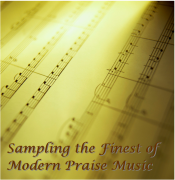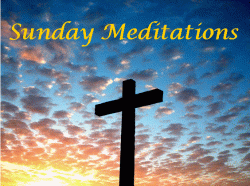 I’m reading through a new Christian Focus book entitled Singing the Songs of Jesus: Revisiting the Psalms by Michael LeFebvre. In this book, the author explains why singing the Psalms was so precious to saints through all ages, prior to the rise of the 18th century hymnwriting movement. LeFebre succeeds in making the Psalms come alive and in equipping the modern church with tools for recovering the use of the Psalms.
I’m reading through a new Christian Focus book entitled Singing the Songs of Jesus: Revisiting the Psalms by Michael LeFebvre. In this book, the author explains why singing the Psalms was so precious to saints through all ages, prior to the rise of the 18th century hymnwriting movement. LeFebre succeeds in making the Psalms come alive and in equipping the modern church with tools for recovering the use of the Psalms.
I wanted to offer an excerpt which has captivated me. LeFebvre describes the difference between singing to Christ, and singing with Christ. He avers that when Christians sing the Psalms, we are singing with Christ in a unique way.
You can learn more about the book at Christianfocus.com, and in the next couple weeks, I’ve heard this book will be showcased at their new Christian Focus Booknotes blog, too.
Without further ado, I provide an extended book excerpt. For more, you’ll have to get the book!
In the Gospels, Jesus often took the Psalms to his lips as his own praises. He sang Psalm 41 as his own song: ‘My close friend in whom I trusted…has lifted his heel against me’ (Ps. 41:9/John 13:18). He sang Psalm 118, not as a common experience of God’s people but as his own experience as our true king: ‘The stone that the builders rejected has become the cornerstone’ (Ps. 118:22/Matt. 21:42). Jesus identified himself as the anointed king in psalm 110: ‘The LORD said to my Lord, “Sit at my right hand.”‘ (Ps. 110:1/Mark 12:36). In these and other examples, Jesus frequently showed himself to be the Son of David by taking the Psalms of David to his lips as his own songs (e.g., Matt. 27:46/Ps. 22:1; Luke 23:46/Ps. 31:5; John 2:17/Ps. 69:9).
In fact here is Jesus’ own explanation about his relationship to the Psalms of David:
As Jesus taught in the temple, he said, ‘How can the scribes say that the Christ is the son of David? David himself, in the Holy Spirit, declared, ‘The Lord said to my Lord, Sit at my right hand, until I put your enemies under your feet.’ David himself calls him Lord. So how is he his son (Mark 12:35-37, quoting Ps. 110:1)?
Jesus says that David wrote Psalms for a descendant who would be greater than himself — the coming Christ. In the Holy Spirit, David understood that his songs would ultimately be taken up by the Christ.
Peter makes a similar point in his sermon at Pentecost. Peter preached from a string of Old Testament texts, including several Psalms (Pss. 16, 89, 110, 132)…. According to Peter, David wrote the Psalms ‘knowing’ that God had promised the Christ would come from his line. And he wrote Psalm 16 ‘foreseeing’ the resurrection of Christ. The Psalms were born out of the experiences of David and his heirs, but David wrote with awareness of the coming Son of David who would ultimately take the Psalms to his lips as our perfect king and songleader.
From the beginning, the Psalms were composed for Jesus — as his songs. No wonder the New Testament church never set the Psalmbook aside. They took up the Psalms in great delight, singing in them with Jesus.
Let me offer a word picture to anchor this principle. Imagine that a friend of yours has invited you to a concert. A famous choir is in town, and your friend bought two tickets. As you slip into your seats in the concert hall, a one hundred voice choir lines the platform before you. And the music begins. The singing is superb. It could not be better. It is such a pleasant evening, you and your friend decide to return the next week for another concert.
The next week, you return to the hall and find the same choir singing again. This time, however, a world famous tenor is going to be on the platform with them. As you sit in the audience listening, you are entranced by the beauty of the soloist’s voice, surrounded majestically by the hundred-voice choir behind him. Perhaps you will come again another time to hear more.
What is the difference between these to, imagined performances? In the first, the audience is listening to the voices of a hundred singers. The song is the choir’s song. In the second performance, however, the audience is listening to the voice of one singer accompanied by a hundred others. But it is the one singer in front who stands under the spotlight. His song is being performed, and the rest join him in singing it.
In Christian worship, God is the audience of our singing. Many congregations today see themselves as that hundred-person choir singing to God. They imagine that they stand as a mass of worshipers, singing their songs of faith to him. That is the expectation behind modern hymns and praise songs. Modern hymns do not say, for example, ‘What a friend I, Joseph Scriven, have in Jesus.’ Hymnwriters compose songs for the congregation to sing as their song to God, with the song’s original author and his experience disappearing from view.
This is where the Psalms are radically different. The Psalms are composed for a use like the second performance imagined above. Our divinely appointed leader, King Jesus, leads our praise. Jesus sings his own songs in his own words (composed prophetically for him). They are his praises of the Father which he calls us, as his subjects, to join him in singing. Rather than disappearing from view, we are supposed to sing in conscious identification with Jesus as our Psalm leader, and with his experience of the cross and resurrection before us.
[emphasis added, from pg. 51-54]
Disclaimer: This book was provided by Christian Focus Publications. I was under no obligation to offer a favorable review.
You can pick up a copy from Amazon.com, Monergism Books, or direct from Christian Focus.
Like this:
Like Loading...
 At Haven Today, a nationally syndicated Christian radio show and podcast, Dr. Donald Brake was recently interviewed on the 400th Anniversary of the King James Bible. Dr. Brake is the author of A Visual History of the English Bible (Baker Books, 2008) and the recently released A Visual History of the King James Bible (Baker Books, 2011).
At Haven Today, a nationally syndicated Christian radio show and podcast, Dr. Donald Brake was recently interviewed on the 400th Anniversary of the King James Bible. Dr. Brake is the author of A Visual History of the English Bible (Baker Books, 2008) and the recently released A Visual History of the King James Bible (Baker Books, 2011).

 Happy Easter, everyone. This song is a wonderful Gospel-centered song from the authors of
Happy Easter, everyone. This song is a wonderful Gospel-centered song from the authors of 